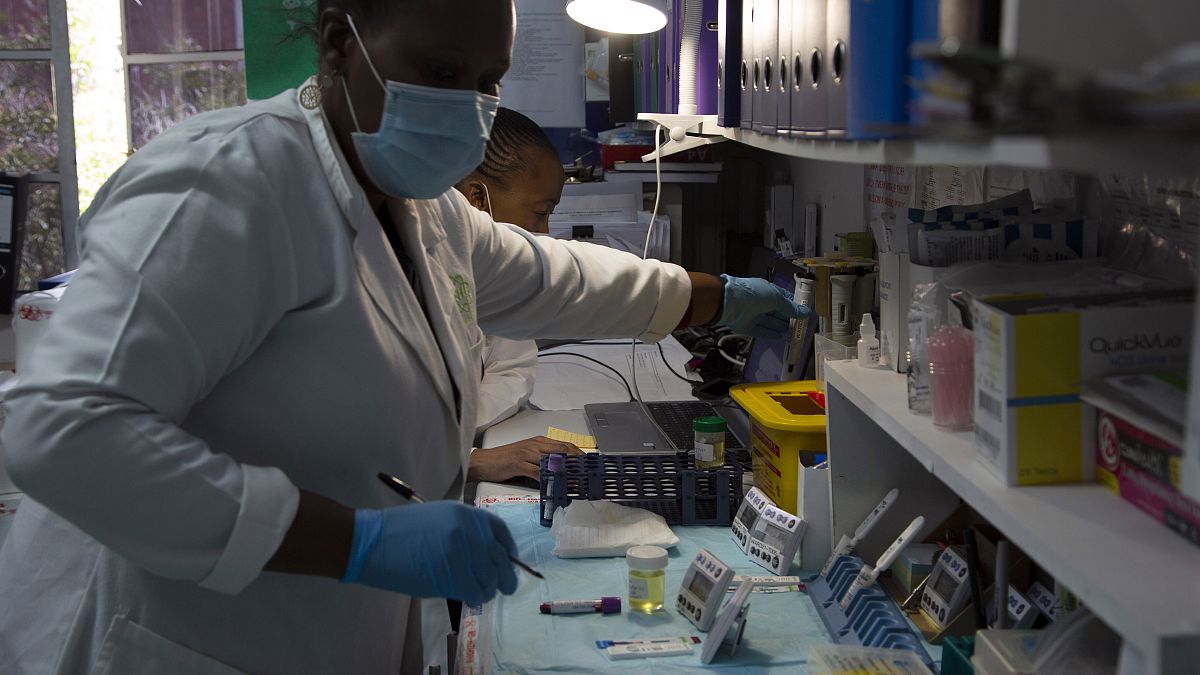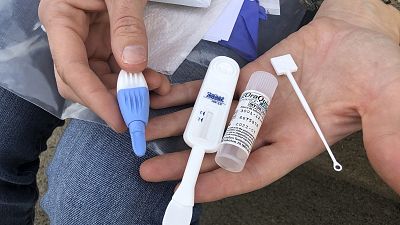Global Fund said results had gone ‘backwards’ for the first time in the organisation’s history.
The COVID-19 pandemic had a “devastating” impact on the fight against HIV, Tuberculosis (TB) and malaria last year, according to a new report released by the organisation Global Fund on Wednesday.
The report said that key programmatic results declined for the first time in the organisation’s history but also said some progress was made.
“To mark our 20th anniversary, we had hoped to focus this year’s Results Report on the extraordinary stories of courage and resilience that made possible the progress we have achieved against HIV, TB and malaria over the last two decades,” Peter Sands, Executive Director of the Global Fund, said.
“But the 2020 numbers force a different focus. They confirm what we feared might happen when COVID-19 struck.
"The impact of COVID-19 on the fight against HIV, TB and malaria and the communities we support has been devastating. For the first time in the history of the global fund, key programmatic results have gone backwards".
What were the findings?
The report found “significant” declines in HIV testing and prevention services for key and vulnerable populations who were already disproportionately affected. Compared with 2019, the people reached by HIV prevention programmes and services declined by 11 per cent.
Young people reached by HIV prevention services declined by 12 per cent and mothers receiving medicine to prevent transmitting HIV to their babies dropped by 4.5 per cent.
The report also found HIV testing dropped by 22 per cent, holding back HIV treatment in most countries.
But the report also found 21.9 million people received lifesaving antiretroviral therapy for HIV in 2020, an 8.8 per cent increase compared to 2019 despite COVID-19.
Global Fund also found that the pandemic’s impact on the fight against TB was also “catastrophic”.
The report said the number of people treated for drug-resistant TB in the countries where the Global Fund invests dropped by 19 per cent.
Those on treatment for extensively drug-resistant TB registering saw an even bigger drop of 37 per cent.
The fund calculated that around 4.7 million people were treated for TB in 2020, around one million fewer compared to the previous year.
Meanwhile, the fight against malaria appeared to have been “less badly affected by COVID-19 than the other two diseases", the report found.
"Thanks to adaptation measures and the diligence and innovation of community health workers, prevention activities remained stable or increased compared to 2019".
The report said the number of mosquito nets distributed increased by 17 per cent and structures covered by indoor residual spraying increased by 3 per cent.
Could have been worse
Despite the stark figures, the Global Fund said its "rapid and determined response to COVID-19 prevented an even worse outcome".
Global Fund is an international financing and partnership organisation that brings together governments, civil society groups, bilateral partners, the private sector and people affected by HIV, TB and malaria.
Last year, it disbursed $4.2 billion (€3.5 billion) to continue the fight against HIV, TB and malaria and approved an additional $980 million (€829 million) in funding to respond to COVID-19.
“Despite the horrible toll COVID-19 has taken, the pandemic presents us with a chance to build a better, more equitable and healthier world,” said Sands.
“Together, we have changed the trajectory of HIV, TB and malaria and we are determined to continue to do so. If we continue to innovate and collaborate — at global, national and local levels– we can end HIV, TB and malaria, beat COVID-19 and build a much stronger foundation for pandemic preparedness and response”.



